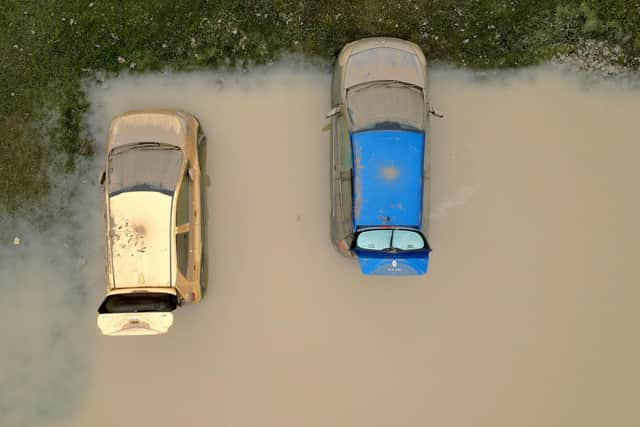How we need to revolutionise education for climate action - Dr Natasha Dowey
The planet is experiencing a dangerous decline in nature, with many species threatened with extinction. It is no wonder that climate anxiety is impacting people all over the world.
However, there is still hope. We can mitigate climate change and adapt and thrive as a society. The more we do, and the sooner we do it, the more we can reduce future impacts. This hope relies upon education. Today is UNESCO’s Climate Action Day, an event that highlights the need to act on education for climate change.
Advertisement
Hide AdAdvertisement
Hide AdWith the UK government committed to delivering almost half a million skilled green jobs by 2030, we need to rethink how we educate and inspire the next generation to develop solutions in all sectors.


Tackling climate change requires disruption to how we live and interact with our planet. It follows that how we teach future generations about these challenges, and how we inspire them to develop solutions, needs to be equally disruptive and forward-thinking.
At Sheffield Hallam, we are building a new vision for climate education that breaks down barriers between subject areas. A new degree in Climate, Sustainability and Environmental Management explores the interactions between our planet, nature and society.
We are going beyond traditional department limits to bring together climate change experts from across our University. These relationships are as valuable to the academics as they will be to the students who take the course.
Advertisement
Hide AdAdvertisement
Hide AdThe degree will bring together students from varied backgrounds and experiences, empowering them to develop innovative ideas and critical skills to take into the green workforce. Of course, effective education to meet the challenges of the climate and biodiversity emergencies is not just about the content we teach, it is about how we teach it.
Prestigious scientific academies remain places of inequity, with colonial attitudes and environments that can be hostile to those in the minority.
The climate emergency is not impacting society equally, and to continue with inequitable education will only sustain the unfairness already faced by many communities on the front line of climate change.
Universities can and must do better. At Hallam we are striving to create anti-colonial, international, inclusive approaches to climate action education, learning through partnerships with institutions across the world.
Advertisement
Hide AdAdvertisement
Hide AdThis must enter all aspects of our work, from our case studies and fieldwork to the knowledge that informs our teaching and research, to the environments we develop and nurture in our teaching spaces.
How straightforward are these changes to implement? Disruption isn't easy. Leaders in education have a vital role to play, in going beyond the bare minimum and providing the support and resources for educators to make this change.
Dr Natasha Dowey is Associate Professor of Sustainable Geoscience at Sheffield Hallam University.